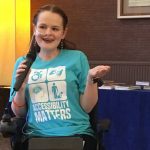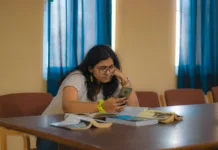Reading is a past time adored by many, but it can be a difficult hobby to navigate because of its inaccessibility, expense and time rich needs. If I’m being honest I didn’t really enjoy reading until I was freed from the shackles of education. I despise the over analytical culture (some) tutors foster in their classrooms. It has taken me into my twenties to learn that reading something and not having any academic outcome from it answered is an okay thing.
Tracking what you’re reading is a great way to choose future reads but to also keep a log of the genre, length, themes and style of book you enjoy reading. I use a relatively new service called Storygraph, which is still in Beta testing and is available for free. It was set up by a woman of colour after seeing a gap in the market in regard to book tracking services. Storygraph has made me reassess how many books I am reading, not only in quantity but quality. According to my statistics, I most commonly read reflective books, with medium paced storytelling, under 300 pages long, and most likely non-fiction. In my opinion their algorithm is unrivalled – the books they have suggested I read have been spot on.
There is a huge and very kind network of book bloggers, especially on YouTube where they are referred to as BookTubers. These channels feel like safe spaces where book lovers gather to enthuse about the things they have loved or hated about a new release, geek out at someone’s gorgeous bookshelves or have structured debate, such as whether books are a type of over-consumerism or not.
I practise the Pomodoro method when it comes to reading. Unless your book is absolutely gripping, the mind can start to wander, which means you need to go back and re-read pages. However, using the Pomodoro method you do a job for twenty minutes (say, replying to emails) and get ten minutes off (to play on animal crossing). This gives you structured procrastination and working time frames. I also use a mixture of audible and the text to speech function on the kindle app. Even though the latter is a bit strange at first (because it’s essentially siri reading to you, so there is no normal emphasis/ cadence to the speech), I have found it useful when I am tired and simply follow along like a child listening to their parent read to them.
If you’re more of an offline person and prefer to purchase books outright, consider an ordering system based on your lifestyle. Since the age of six I have wanted to be a librarian, so naturally my books are in alphabetical order by author surname. I should point out that this isn’t exactly normal for a domestic bookshelf, and if you’d simply like to track the books you have and haven’t read, you could use something as easy as coloured dot stickers to tape to the spine of finished books. Any kind of mark on the spine makes a book stand out so you don’t need to search for twenty minutes to track down that book you want to pass onto a friend.
Finally, if you’re a book lover but can’t go to your local bookshop at the moment due to the pandemic, consider searching for them on Bookshop.org. Recently I was given a very kind gift for purchasing books to see me through the winter. On Bookshop.org I spent £90 on books, £35 of which went to my local bookshop simply by choosing them as the beneficiary bookshop. Times are tough for these safe spaces in our usual lives, and hopefully we can support them through the pandemic so they remain places in our lives once the world returns to normal.
















